What does FERPA stand for?
The Family Educational Rights and Privacy Act (FERPA) is a federal law designed to protect the privacy of student education records. So, what does FERPA stand for? It ensures that parents and eligible students have the right to access, amend, and control disclosures of personally identifiable information (PII) in their education records.
To fully understand the FERPA meaning, you must know that compliance is a critical responsibility for schools, impacting how records are managed, shared, and secured. Failure to adhere to FERPA’s guidelines can result in serious consequences, including federal funding withdrawal and increased scrutiny from regulatory bodies. This makes it essential for schools to implement robust policies and tools to protect sensitive data effectively.
What is FERPA designed to protect in schools?
FERPA affects multiple facets of school operations and requires educators, administrators, and support staff to adhere to strict guidelines when handling student data.
Key impacts of FERPA on schools:
- Data management: Schools must develop processes for storing, accessing, and sharing educational records while ensuring data security.
- Staff training: Teachers and administrative staff need to be trained on what constitutes PII and how to handle it properly.
- Handling record requests: Schools must respond to requests for educational records without inadvertently exposing PII of other students.
For example, when education records contain information about multiple students, redaction or segregation is necessary to prevent unauthorized access to another student’s information. This ensures compliance while fulfilling the record request.
The role of redaction in FERPA compliance and protecting student data
FERPA requires that schools protect sensitive student data that co, including PII such as names, addresses, grades, disciplinary records, and health information, particularly when responding to a FERPA request for access to educational records. Redaction plays a vital role in ensuring FERPA compliance by removing or obscuring this information from documents shared externally. Schools are required to redact or segregate portions of education records related to other students if it can be done reasonably and without compromising the meaning of the record. This obligation ensures compliance with FERPA regulations while protecting the rights of all students involved.
Why redaction is necessary:
- Prevention of identity theft: By redacting details like Social Security numbers and family contact information, schools reduce the risk of data breaches and identity-related crimes.
- Compliance with FERPA: Redacting PII ensures that schools avoid FERPA violations when responding to public record requests or disclosing information.
- Data security: Protecting student records prevents misuse of sensitive information, safeguarding both the school’s reputation and the privacy of students.
Key steps for FERPA compliance
Adhering to FERPA requires schools to establish comprehensive policies and practices. These steps are critical for ensuring compliance:
- Develop policies and procedures: Create detailed guidelines for handling educational records, including data access, storage, and sharing protocols .
- Identify a compliance officer: Assign a dedicated staff member to oversee FERPA adherence and manage training programs.
- Provide annual notification of rights: Inform students and parents about their FERPA rights every year, including their right to access and amend records.
- Train staff: Educate all employees on what FERPA is, what its requirements are, and their roles in protecting student data.
- Obtain consent: Secure written consent from parents or eligible students before disclosing PII, except in cases permitted by FERPA regulations .
- Use secure tools ion: Implement reliable redaction software to efficiently remove sensitive information from records.
NOTE: Schools cannot charge for redaction or segregation costs: Ensure no costs are charged to parents or eligible students for redacting or segregating education records when fulfilling their right to inspect and review. FERPA explicitly prohibits charging fees for these actions, as outlined in 34 CFR § 99.11(b).
Risks of non-compliance with FERPA
FERPA non-compliance poses significant risks for schools. While FERPA does not outline specific monetary penalties, its primary enforcement mechanism is the withdrawal of federal funding. This can have a devastating financial impact on schools, limiting their ability to operate effectively.
Additional risks include:
- Reputational damage: Failure to protect student data can erode trust among parents, students, and the broader community.
- Regulatory scrutiny: Schools found in violation of FERPA may face increased oversight from regulatory bodies.
- Operational challenges: Addressing FERPA violations diverts resources and disrupts daily operations.
Redaction challenges in schools
Many schools still rely on manual redaction methods, such as blacking out text with markers or using graphic tools. These outdated techniques are inefficient and prone to errors, including leaving sensitive information visible or removable.
Key issues with manual redaction:
- Time-consuming processes create backlogs.
- Human errors result in inconsistent redaction.
- Difficulty in maintaining an audit-proof trail for compliance.
For example, a school with 3,000 students attempting manual redaction would likely face delays, increased errors, and heightened risk of exposing sensitive information.
The benefits of automated redaction tools for schools
Automated redaction tools, such as Redactable, offer schools a faster, more reliable solution for FERPA compliance. These tools leverage AI and machine learning to detect and securely redact PII from documents, ensuring accuracy and efficiency. Automated redaction tools provide a comprehensive student data privacy solution school districts can rely on to meet FERPA requirements. By streamlining the redaction process and ensuring accuracy, these tools help schools protect sensitive information, respond to record requests efficiently, and maintain compliance with federal regulations.
How automated tools help schools achieve FERPA compliance
- Accuracy: Advanced algorithms ensure consistent and error-free redaction by recognizing patterns and identifying sensitive data.
- Efficiency: Automated tools drastically reduce the time required for redaction, completing tasks in minutes instead of hours.
- Enhanced security: Automated solutions protect redacted data from breaches and unauthorized access.
Beginner’s guide to exploring Redactable
Here’s how to start using Redactable to simplify your redaction process:
1. Visit redactable.com and sign up or log in.
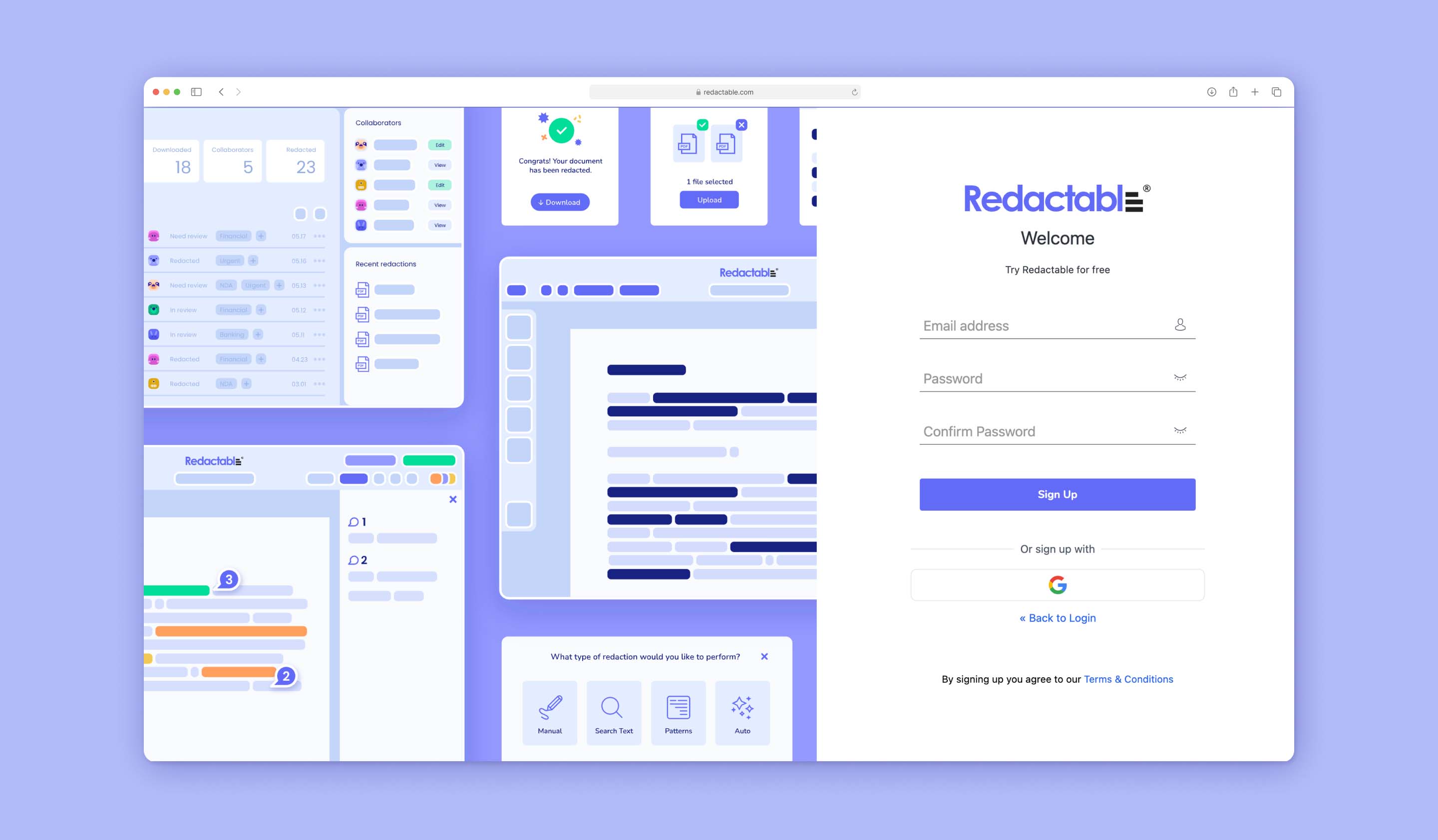
2. Click New Project to view your options for uploading your document.

3. Select your document and click the Upload button.

4. Choose the type of redaction you’d like to perform.
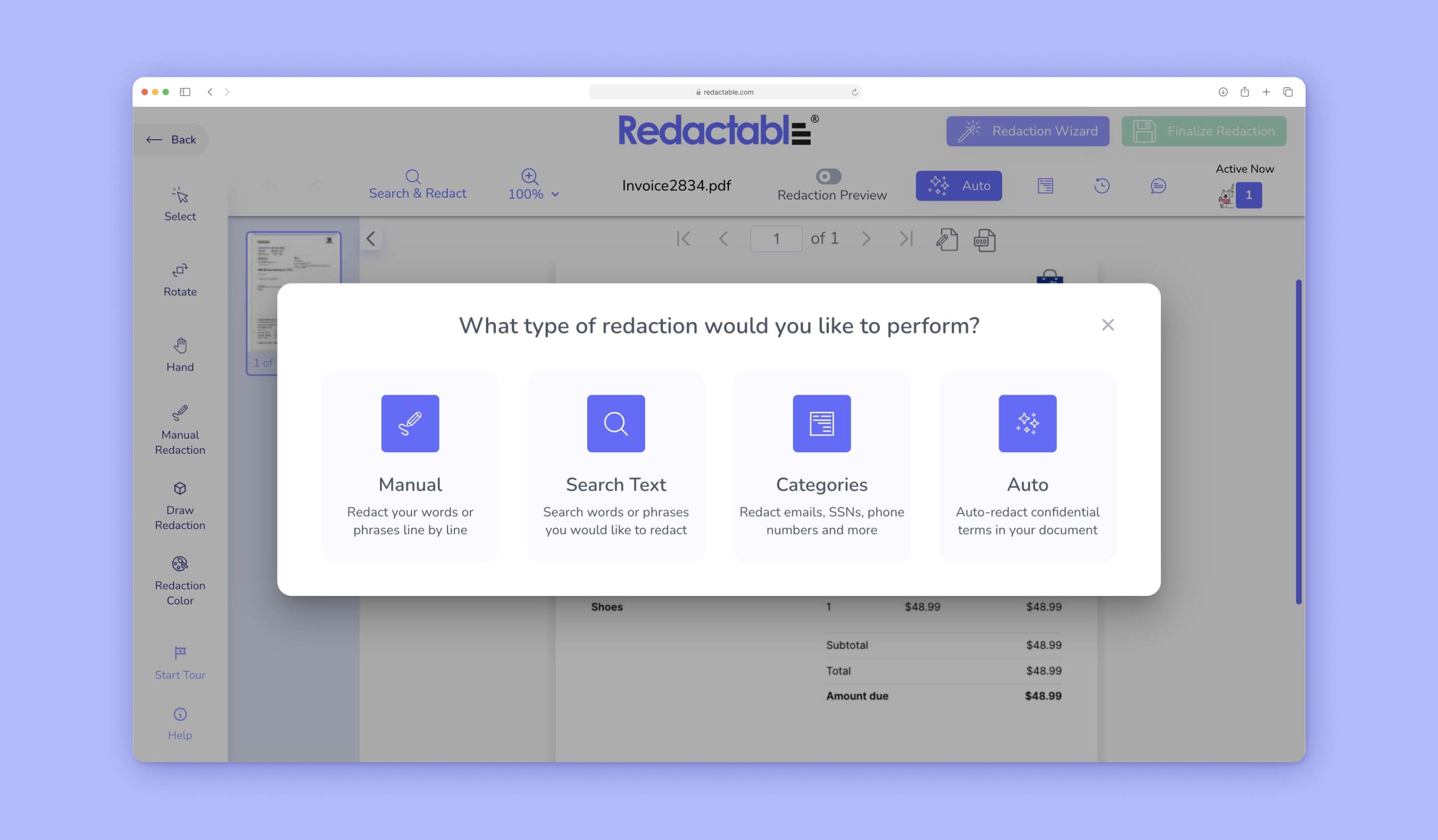
5. Check the boxes of the information you are wanting redacted.
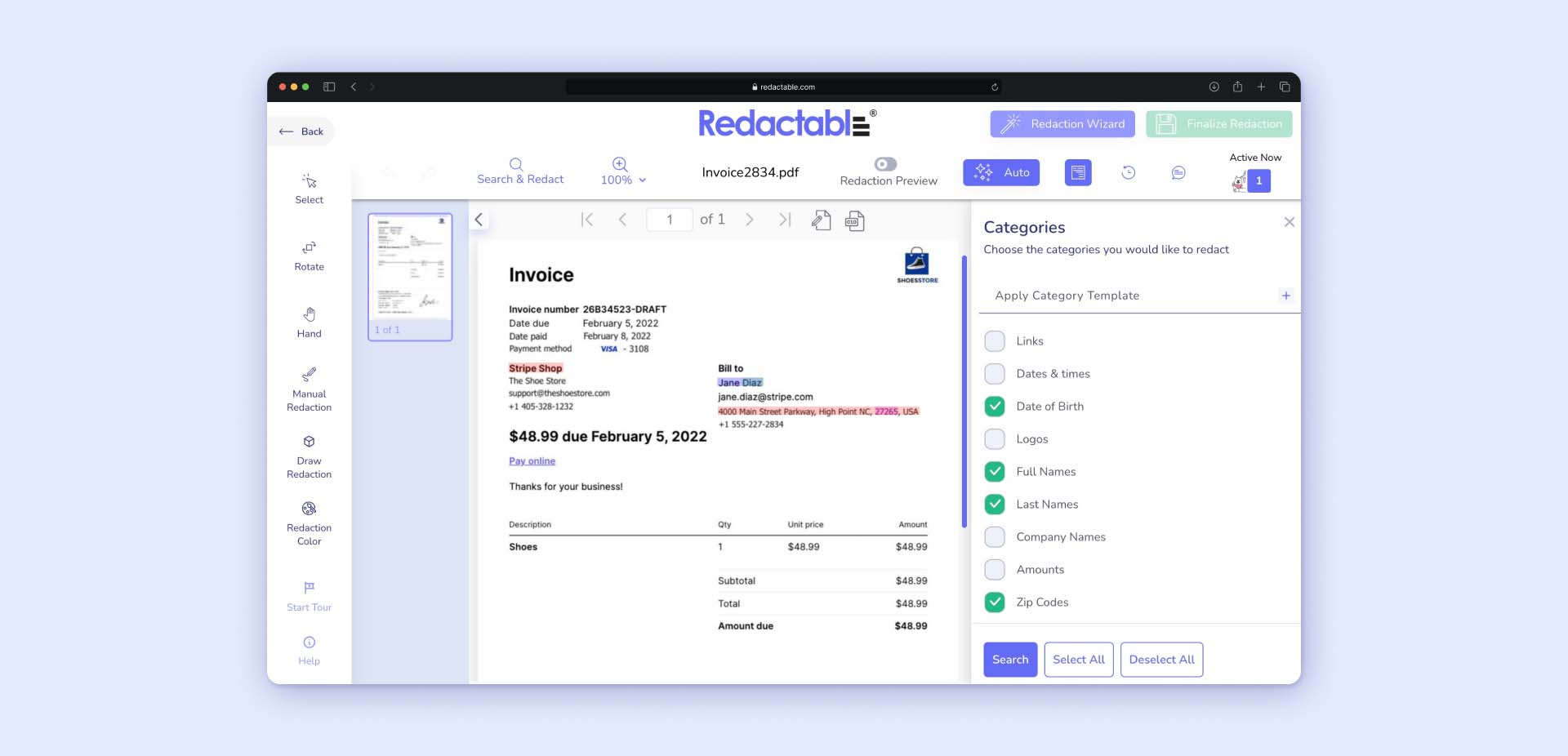
6. Finalize your redactions once you are satisfied with the highlighted data.
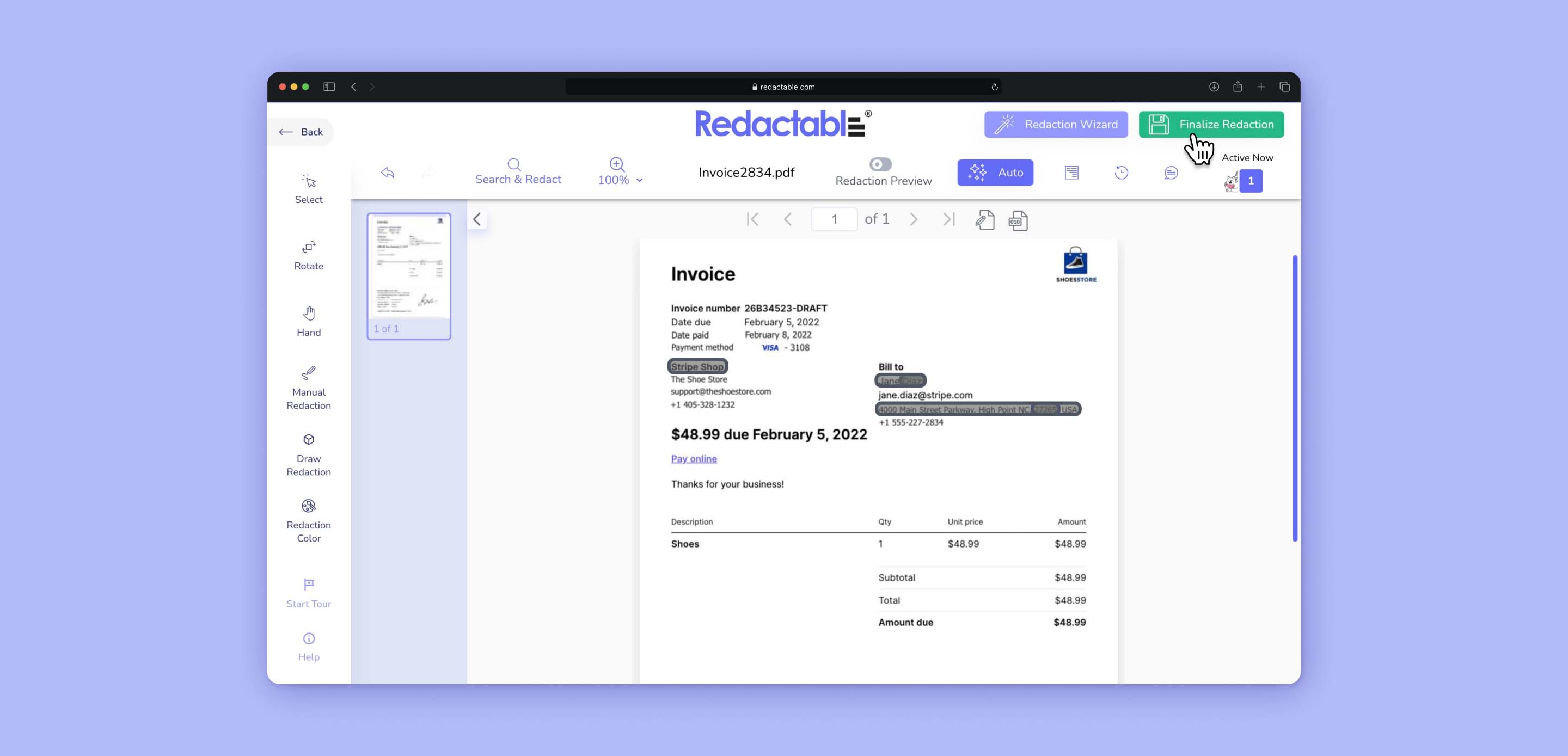
7. Congratulations, your document is complete!
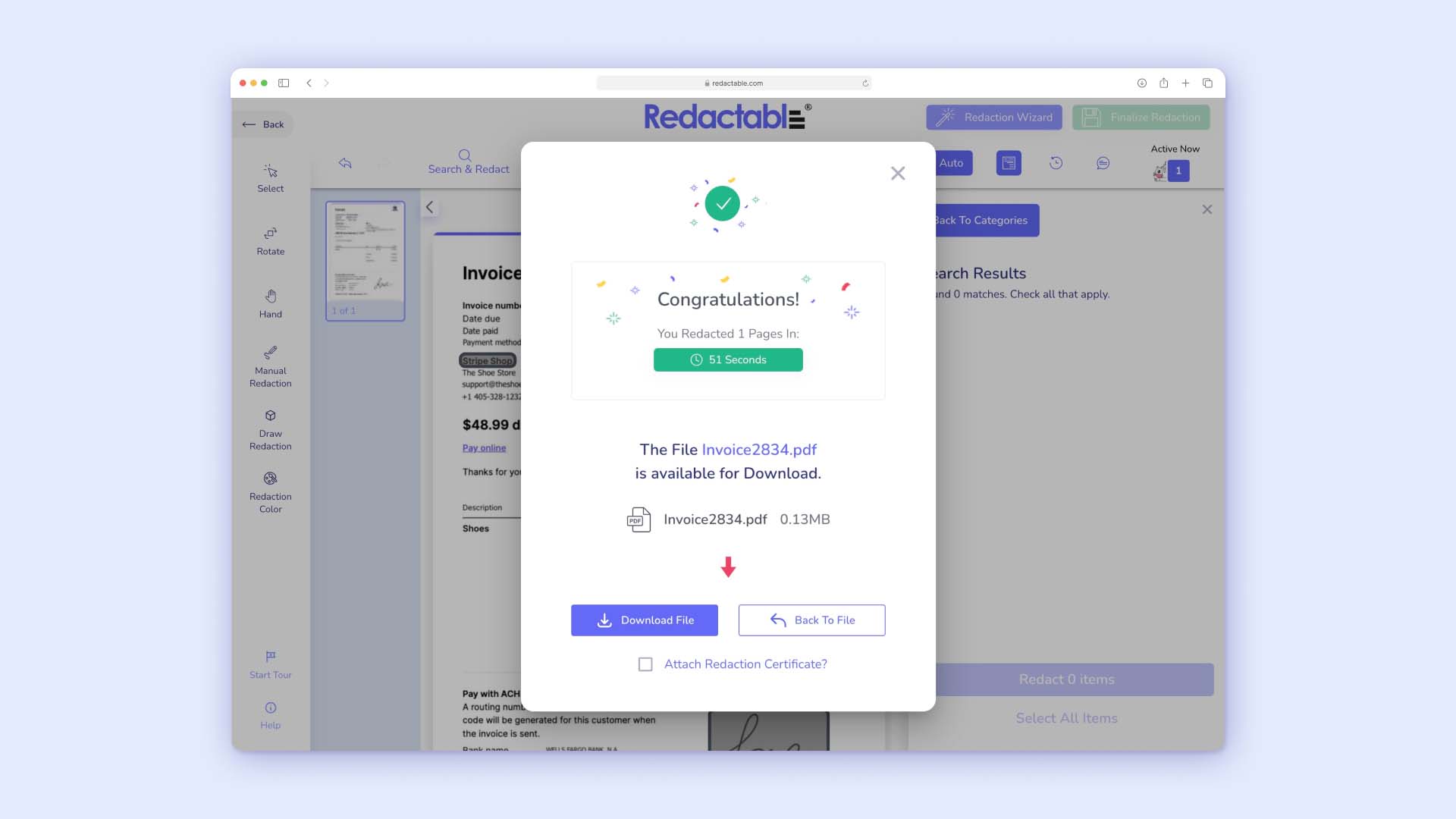
8. Download and view your redacted document.

Start simplifying FERPA compliance today
Protecting student data privacy is not just a legal obligation under FERPA; it’s also a critical component of building trust with students, parents, and the community. As schools face increasing demands for record requests and data protection, manual methods are no longer sufficient to ensure accuracy, efficiency, or security.
Automated redaction tools like Redactable provide an essential solution for modern educational institutions. By streamlining the redaction process, improving data security, and ensuring audit-proof compliance, these tools empower schools to focus on their primary mission: providing quality education while safeguarding student information.Take the first step toward efficient FERPA compliance and stronger data protection. Try Redactable for free today!







